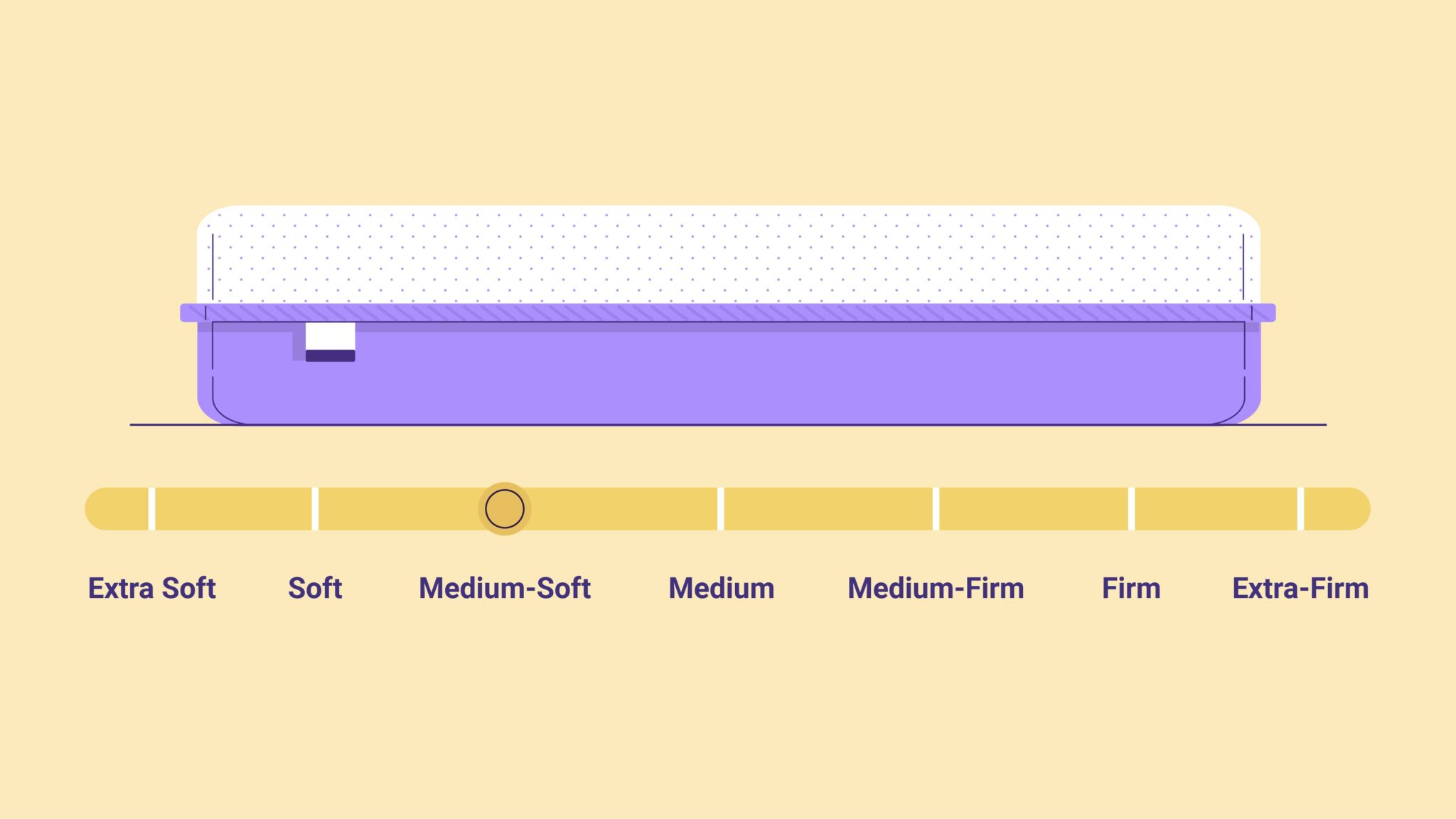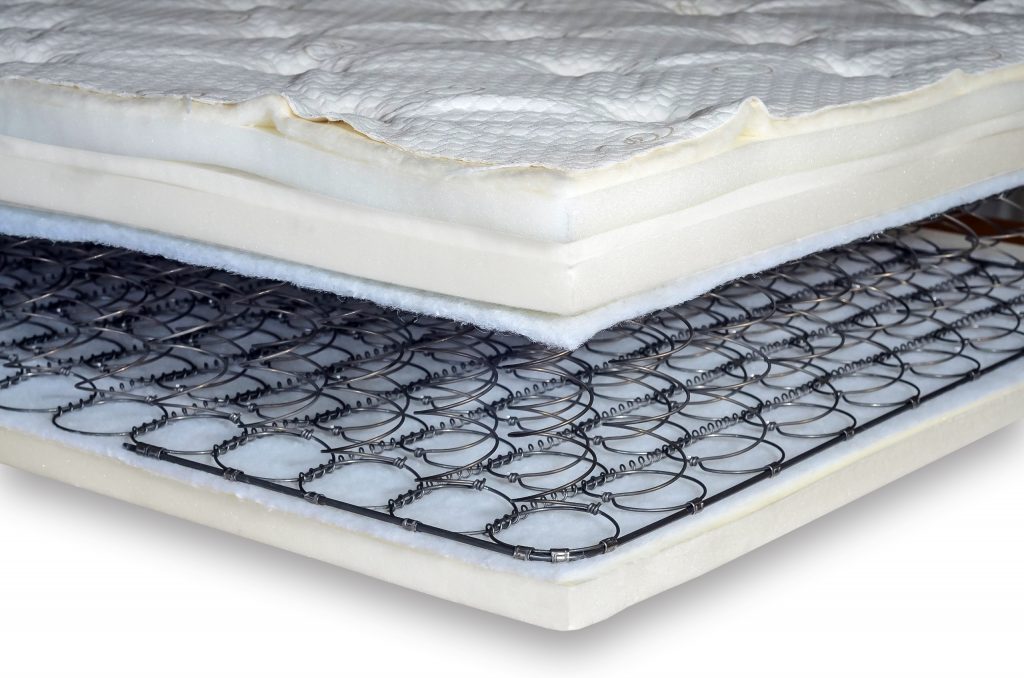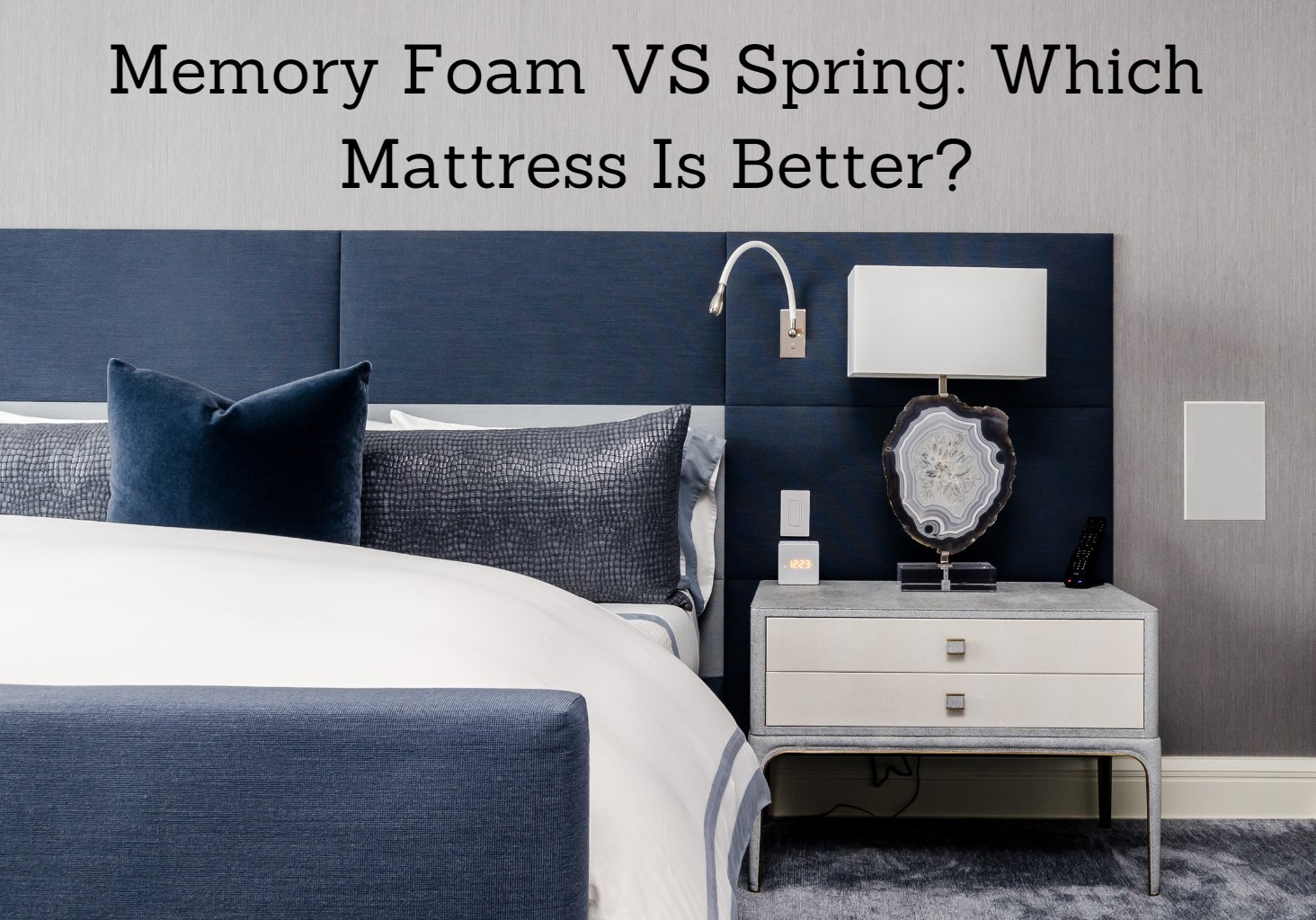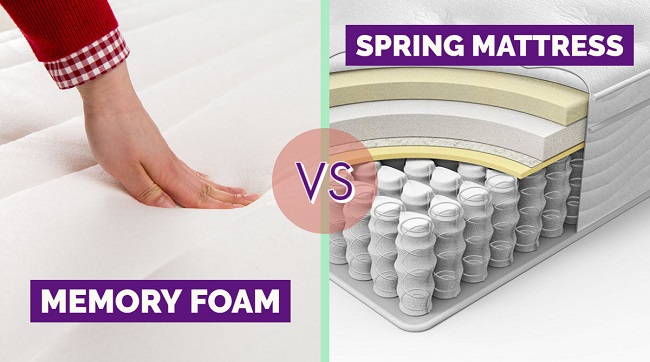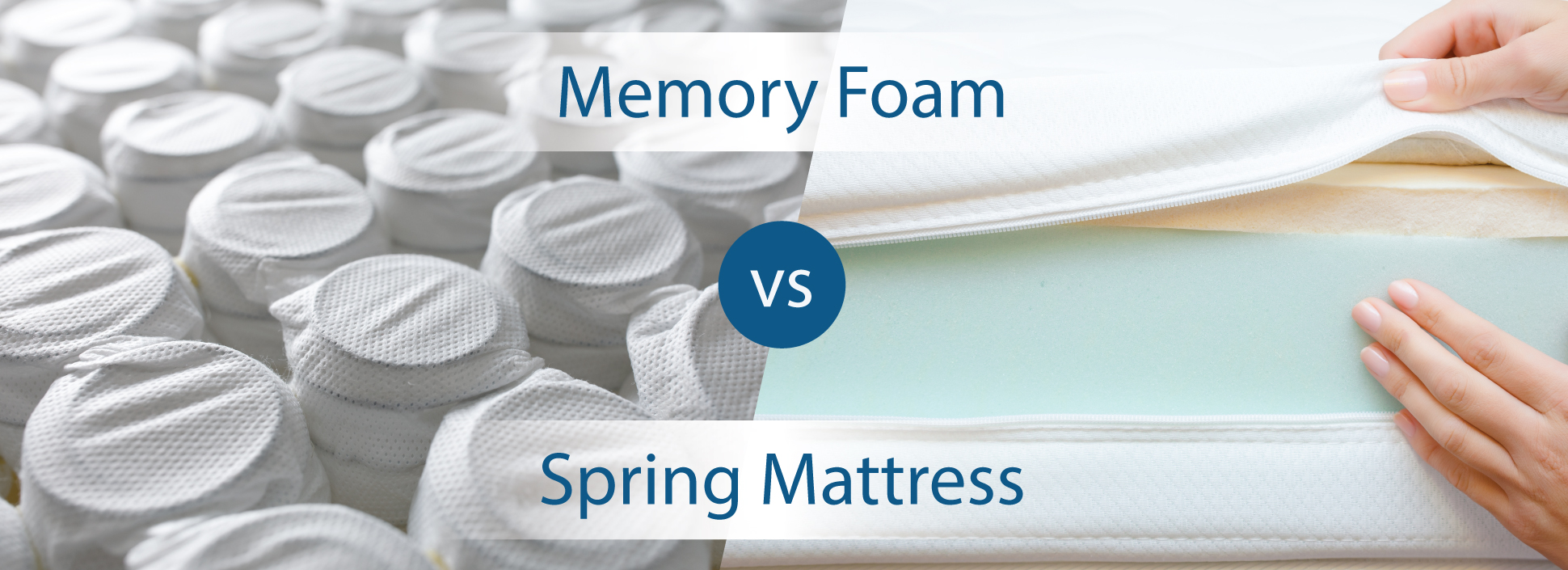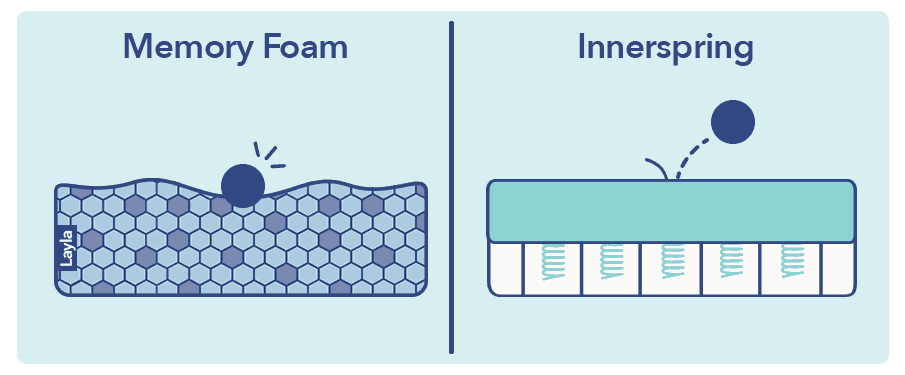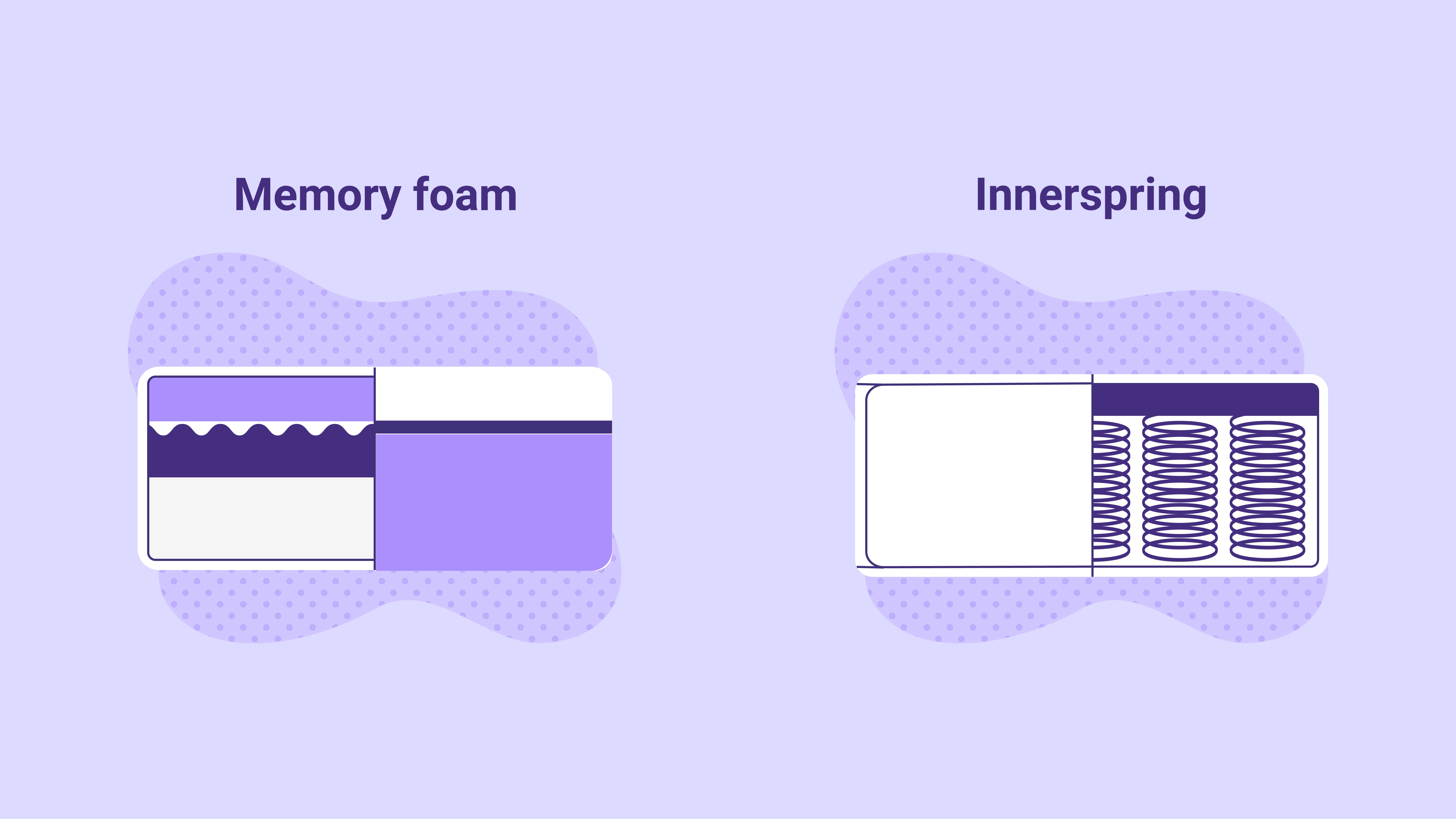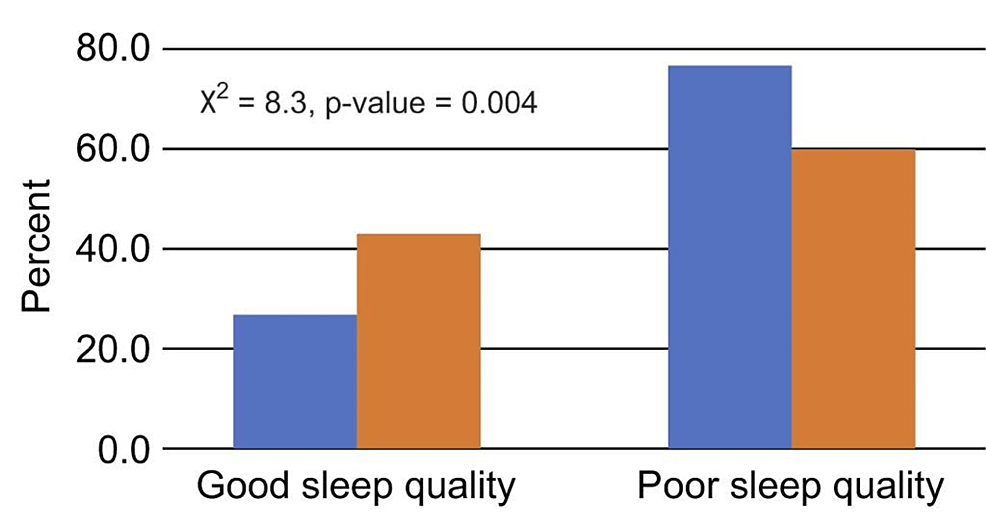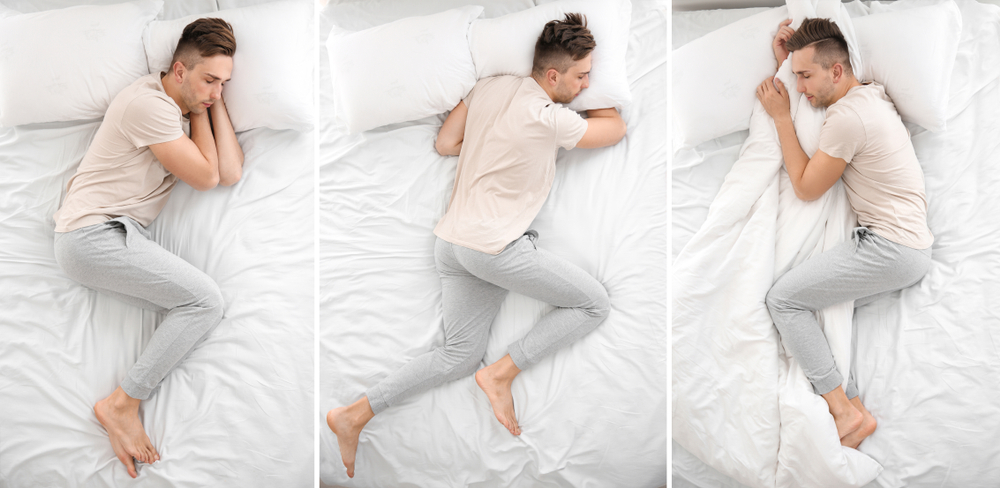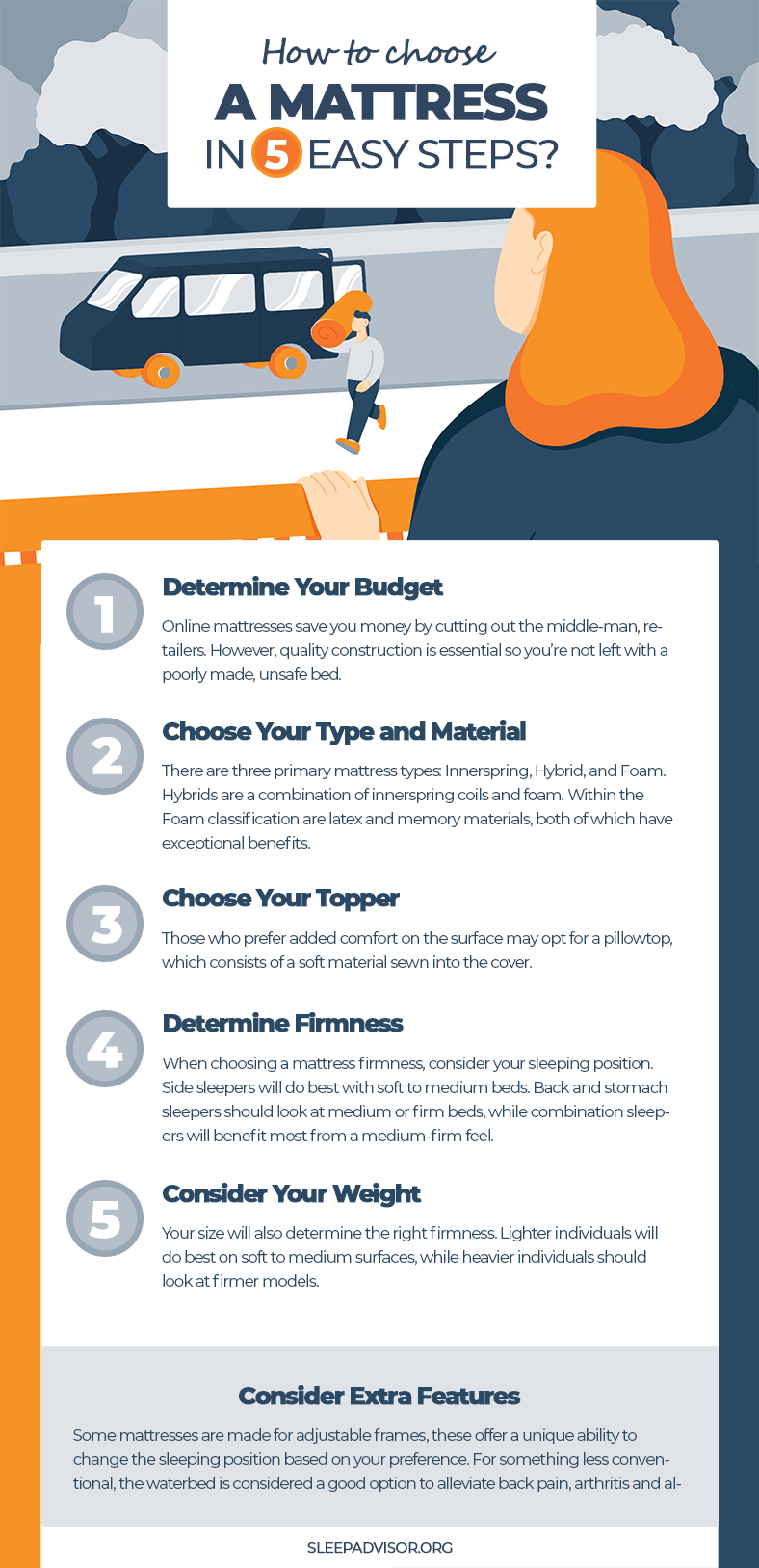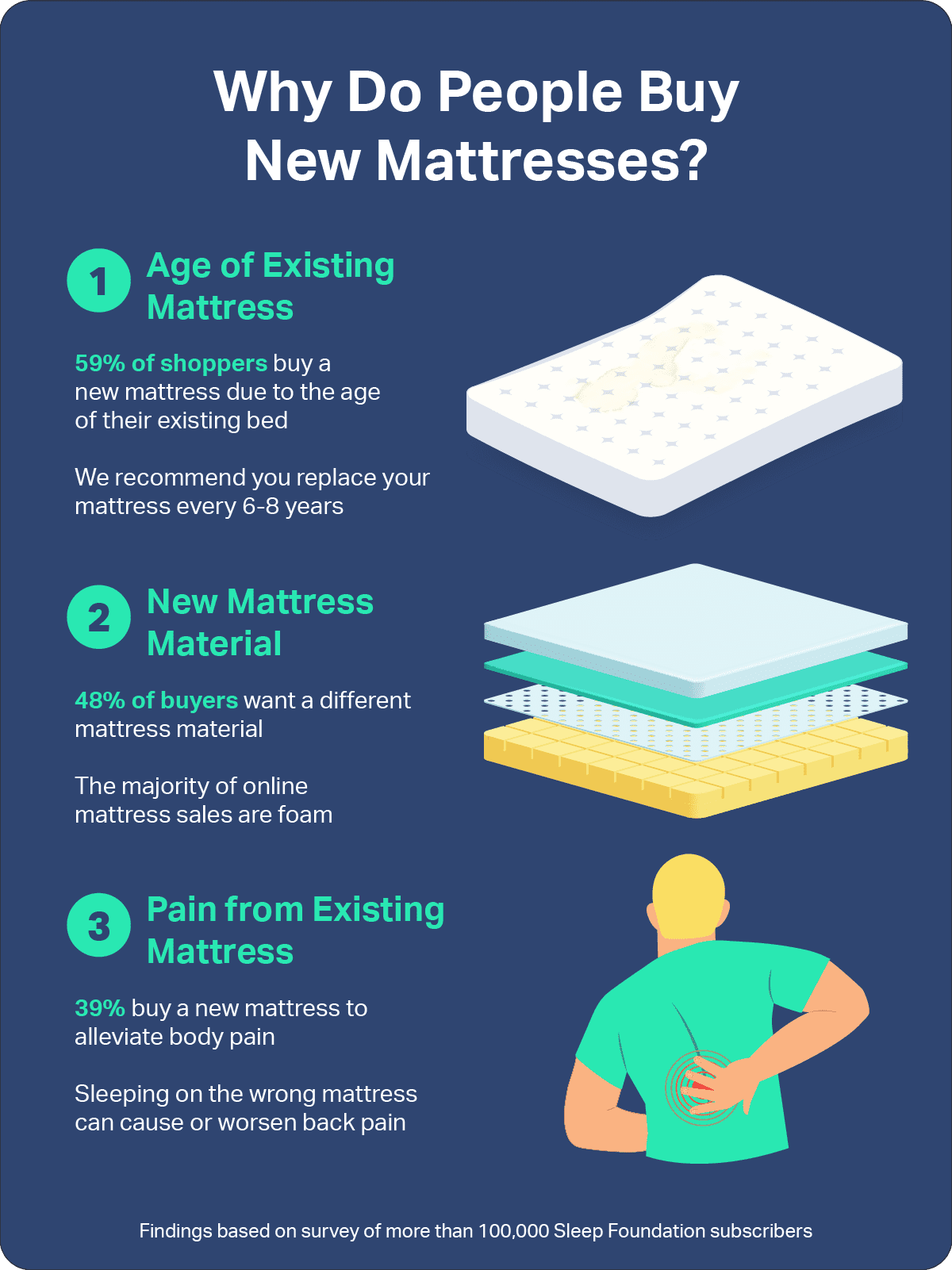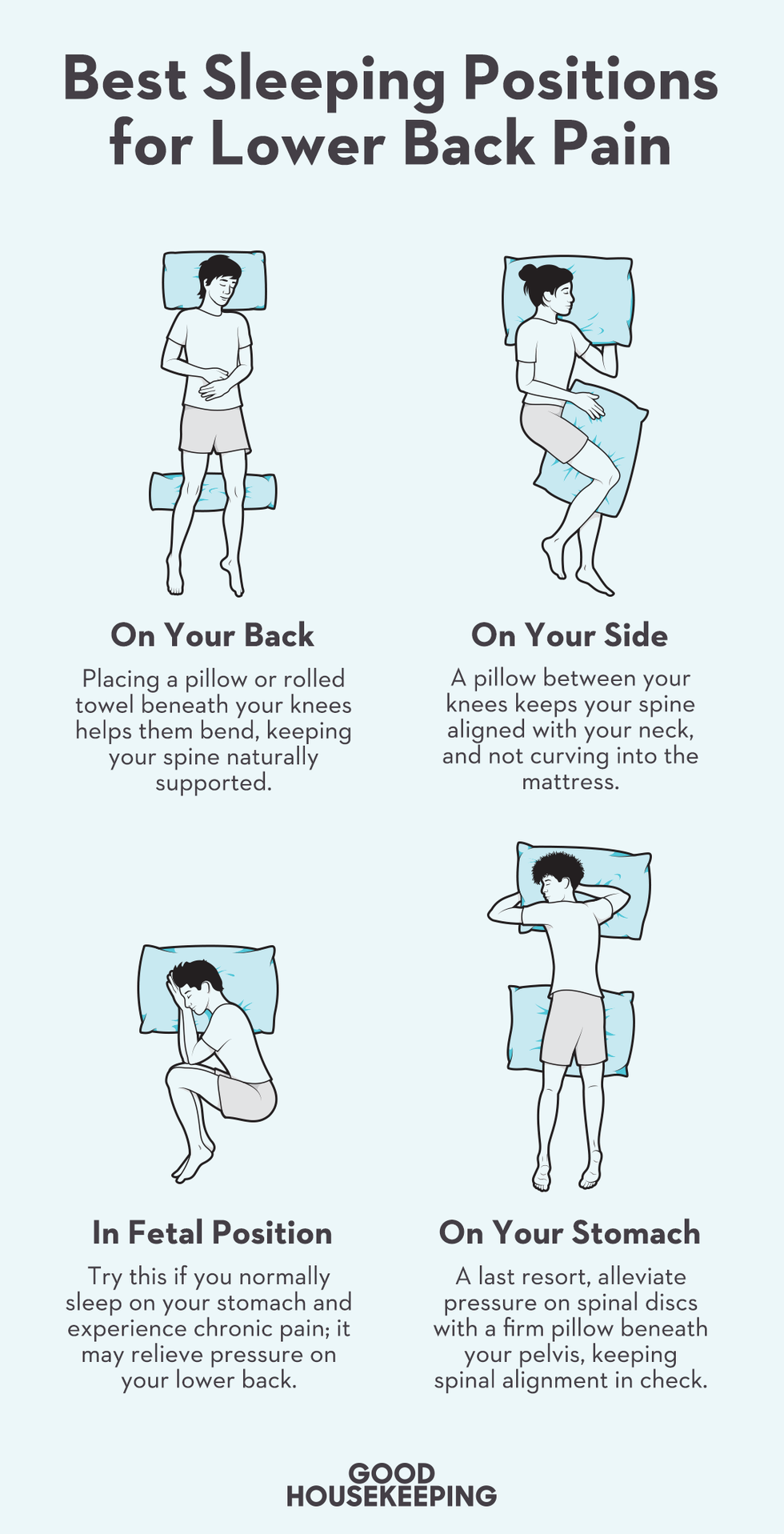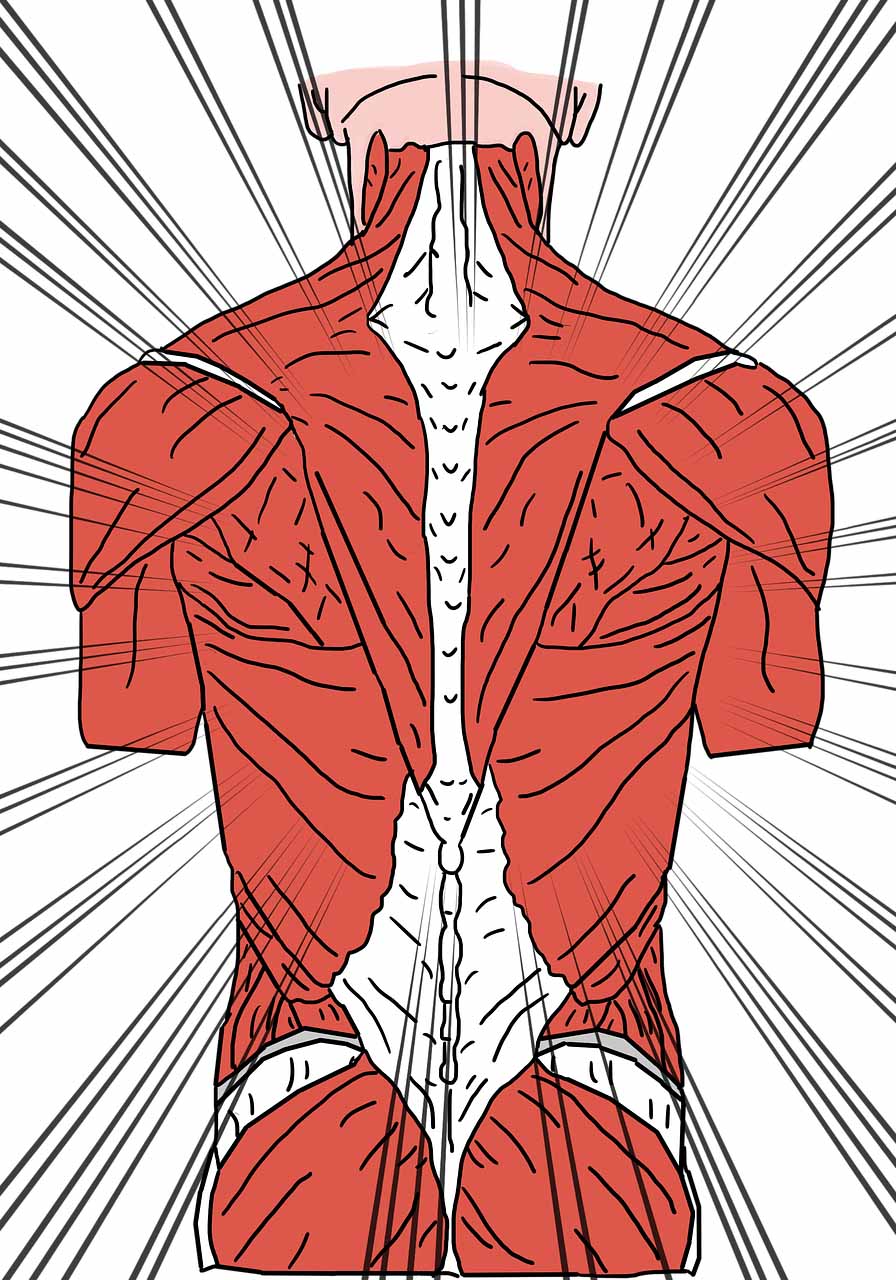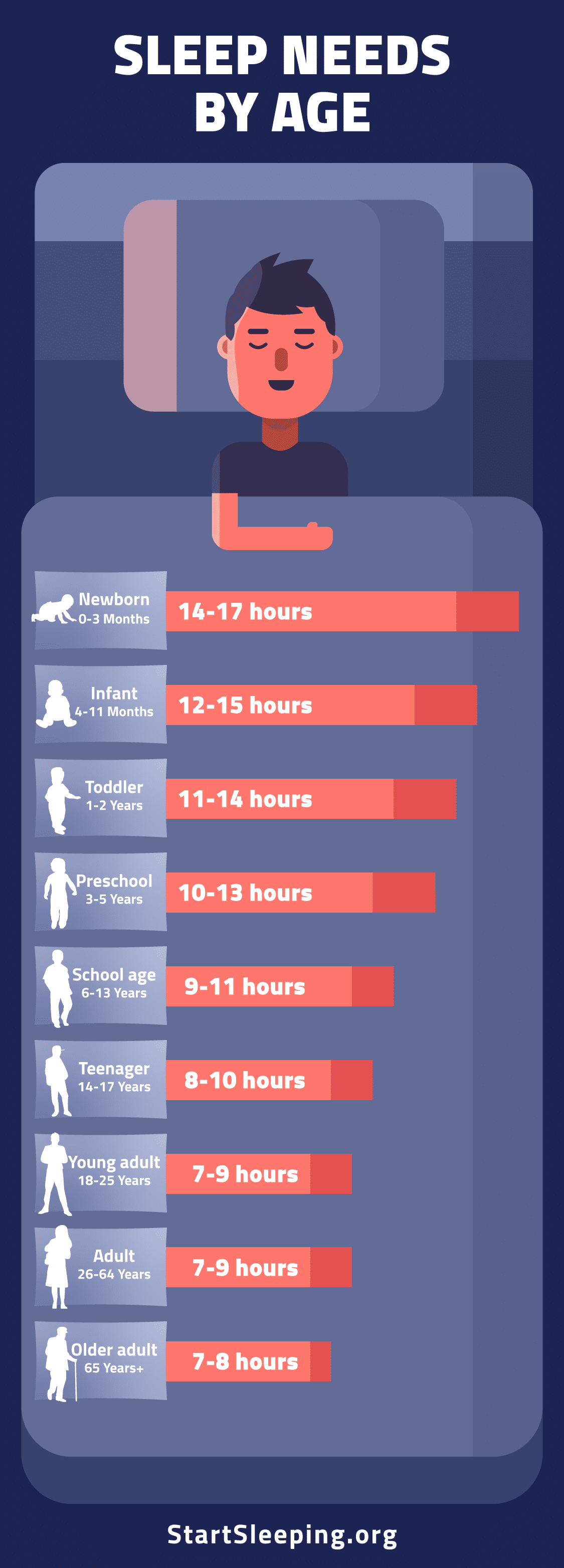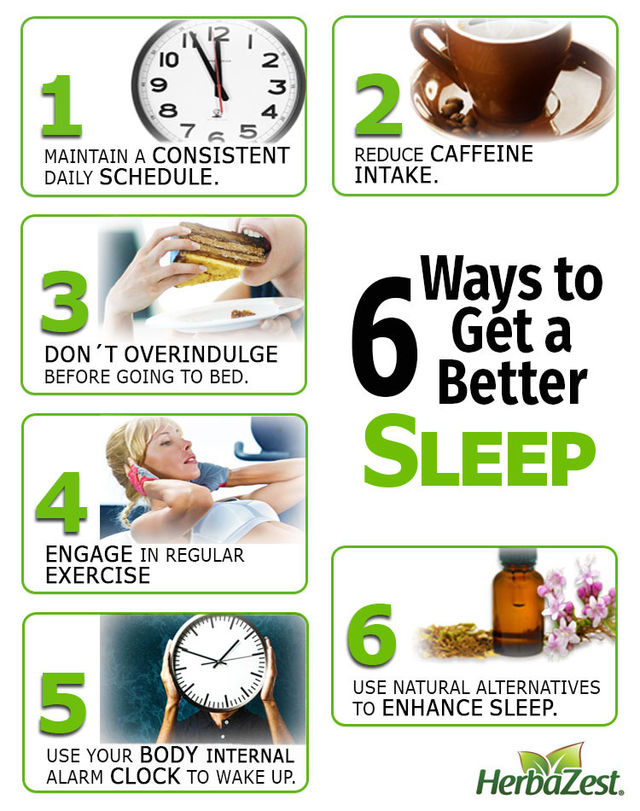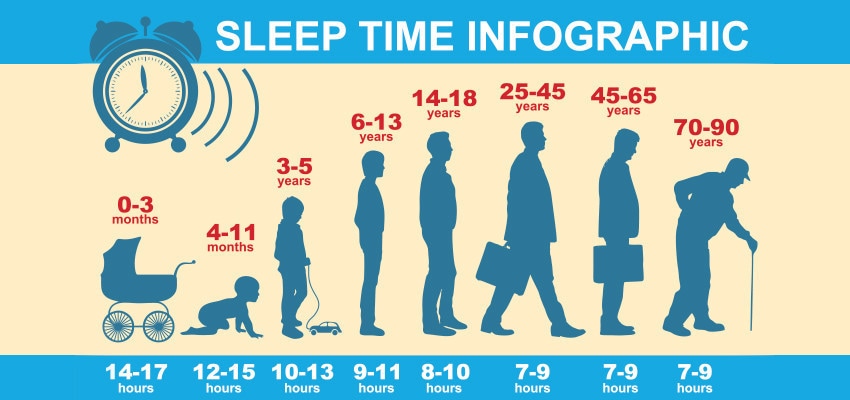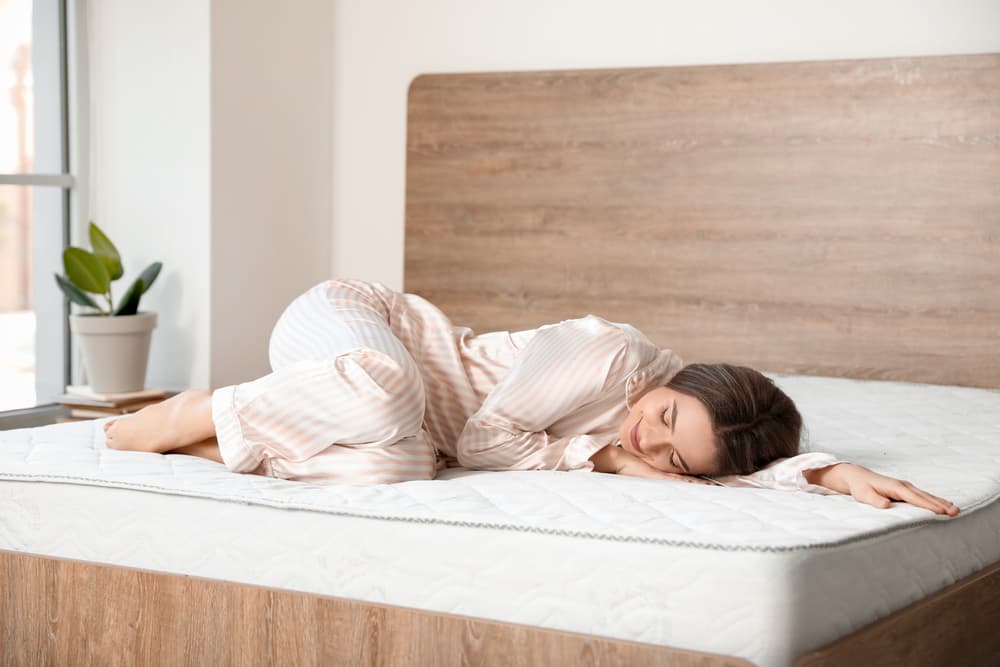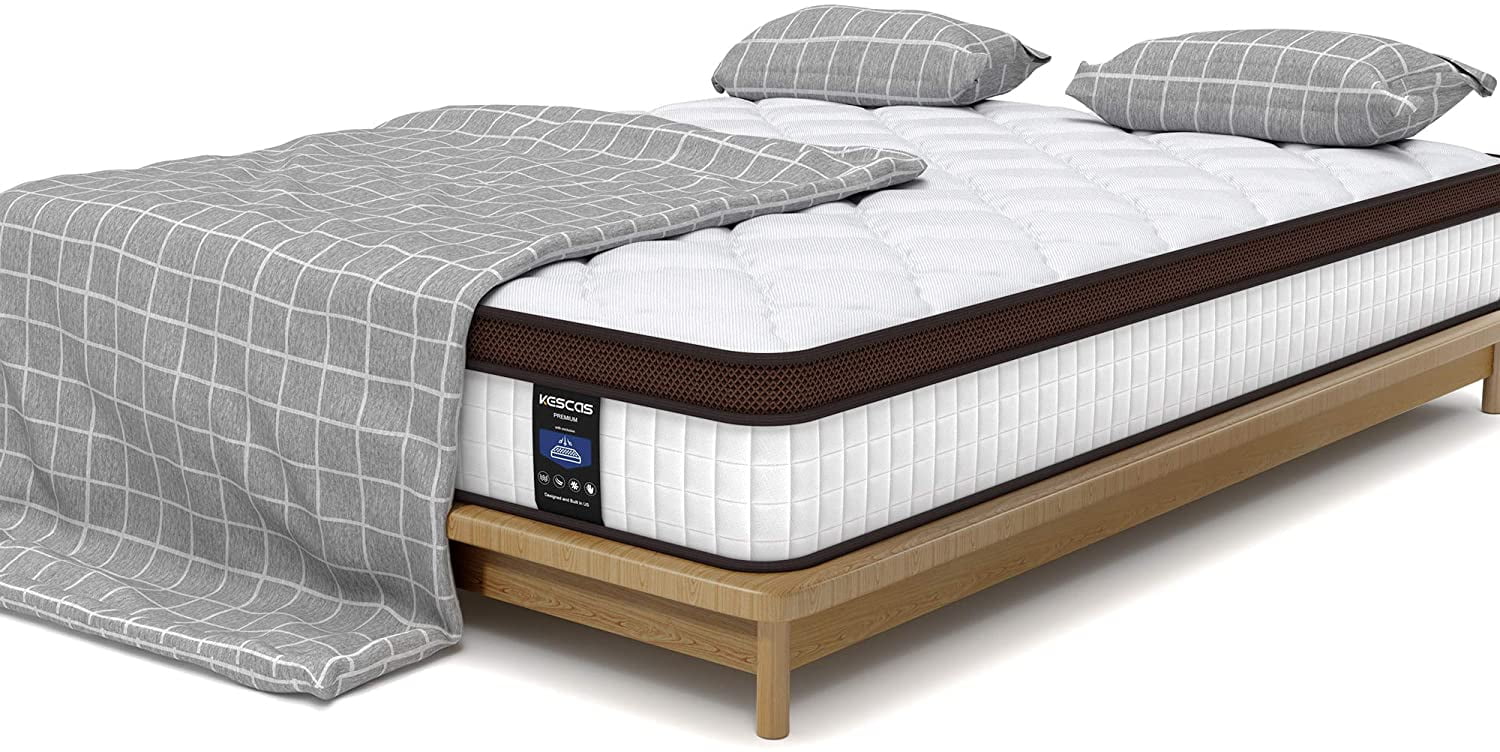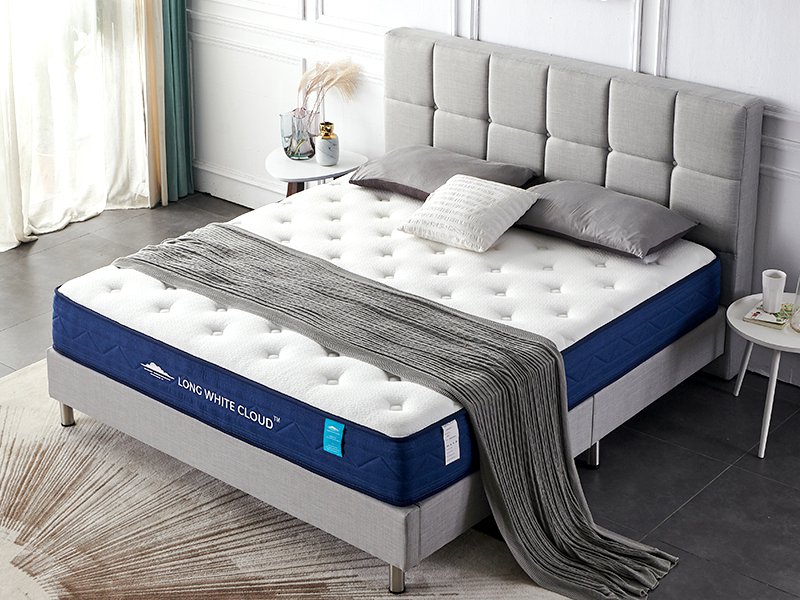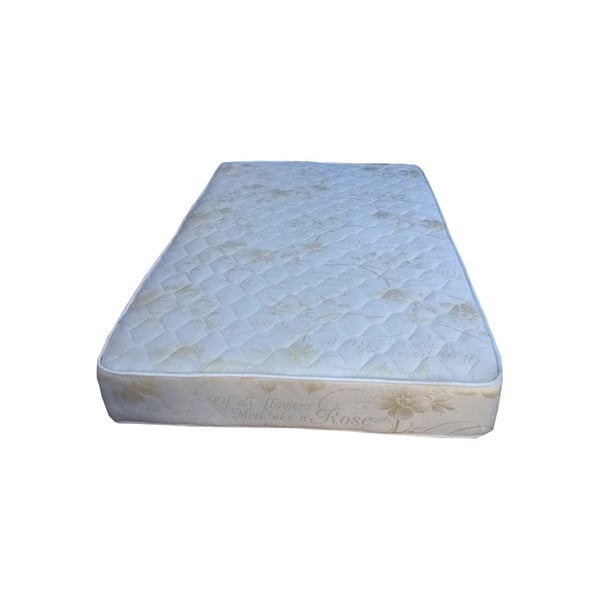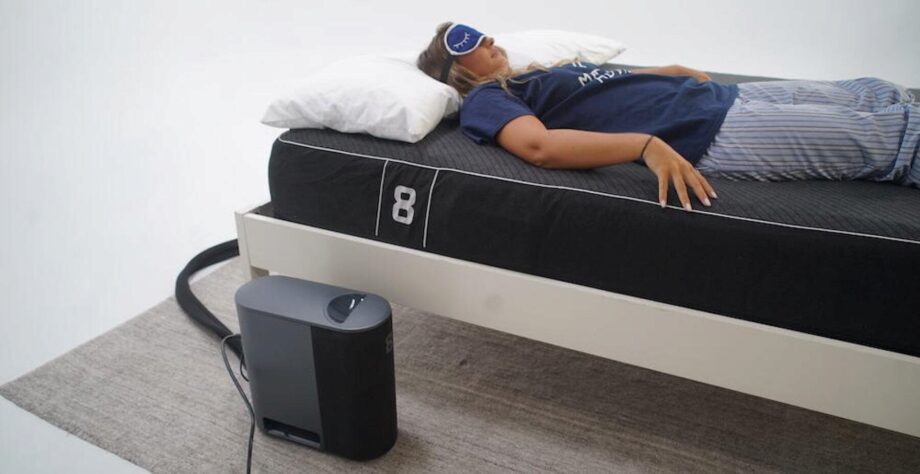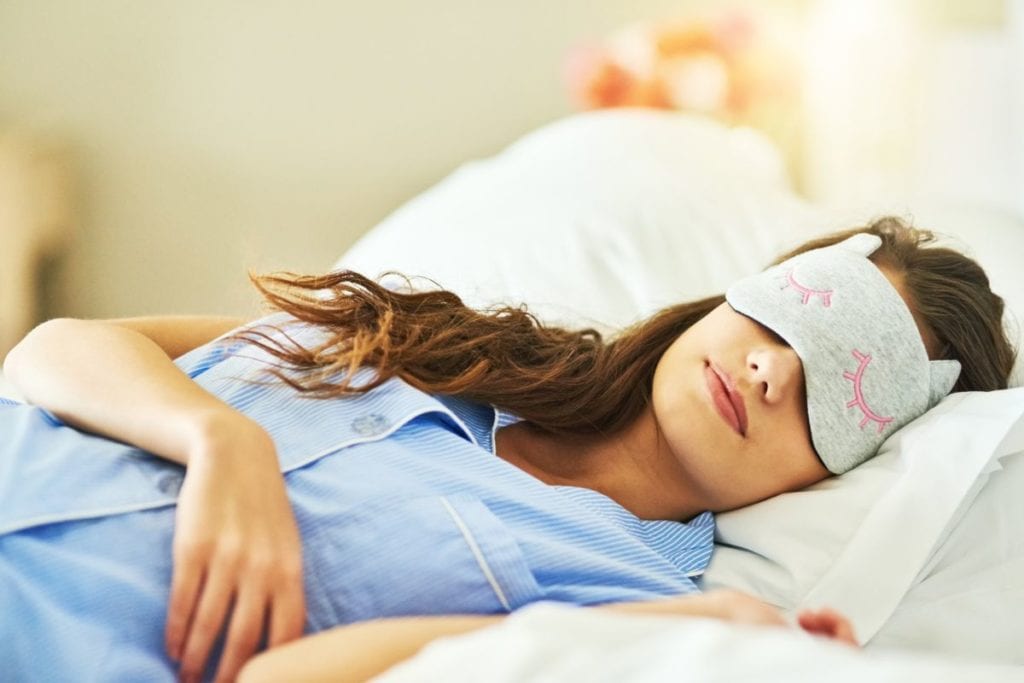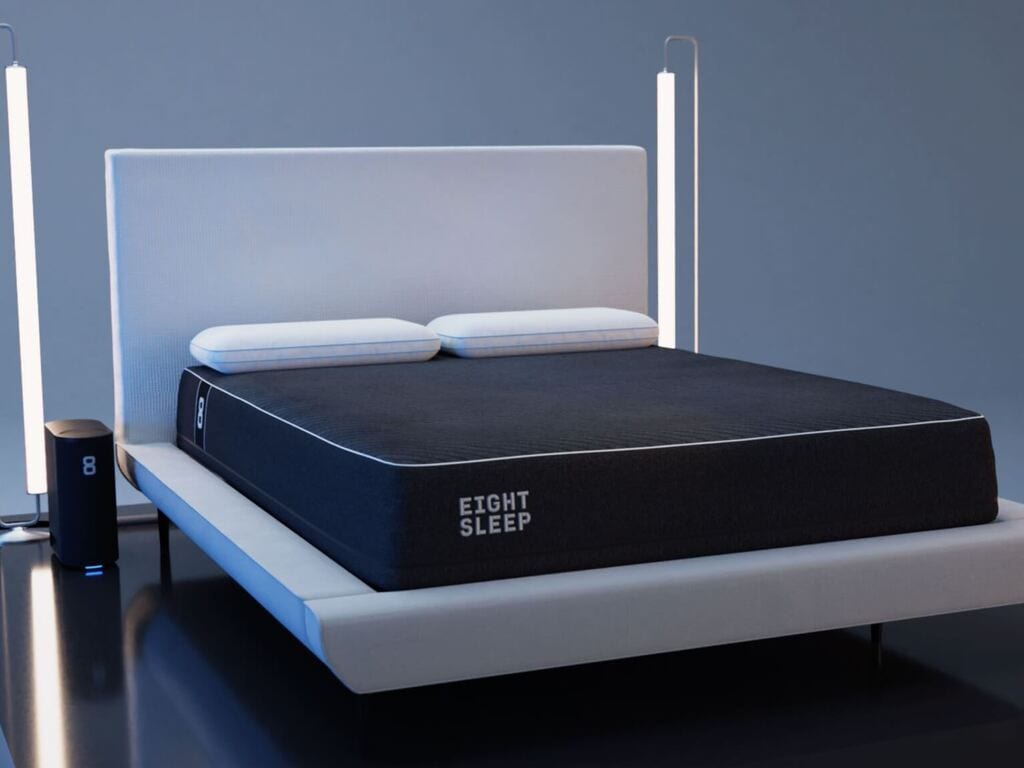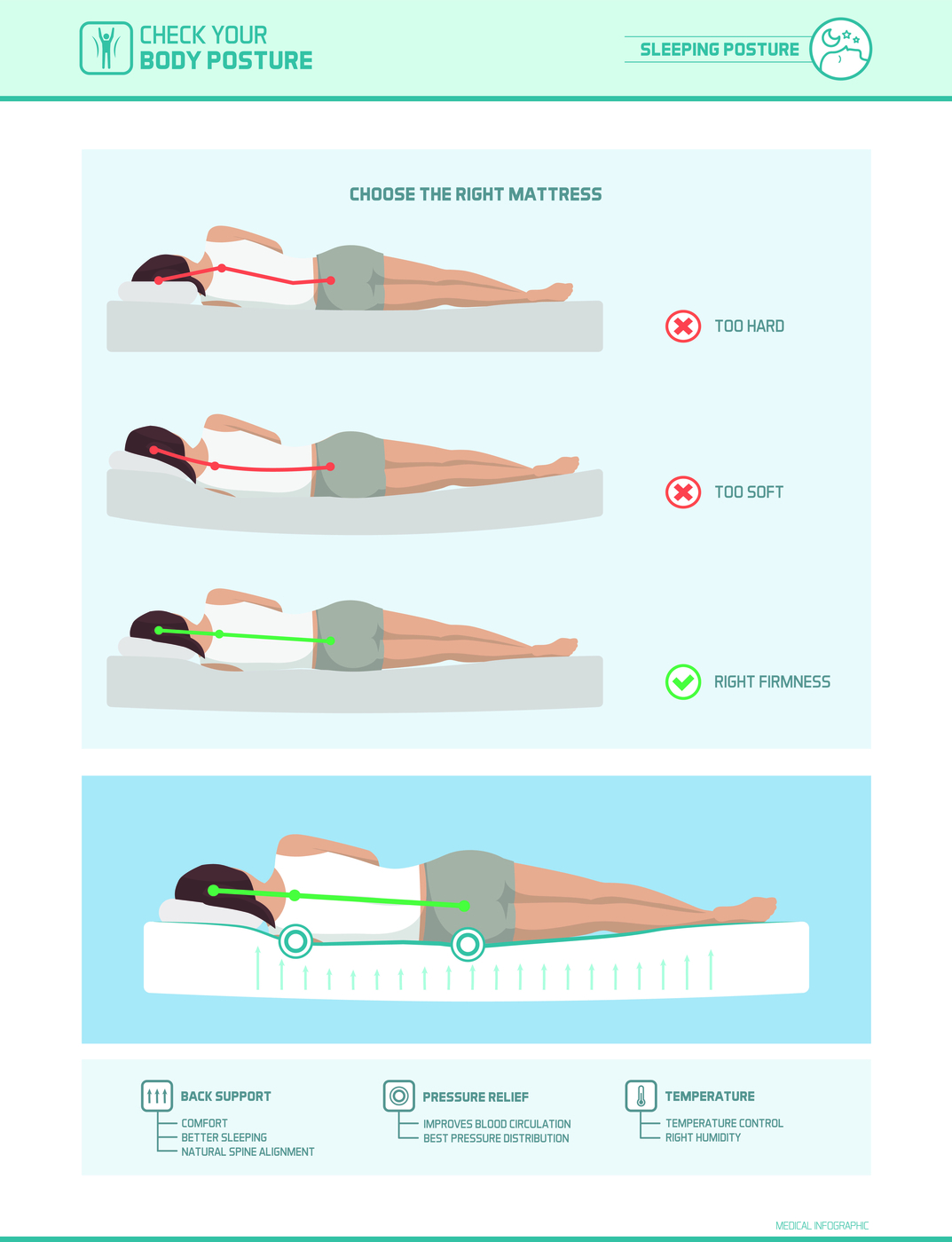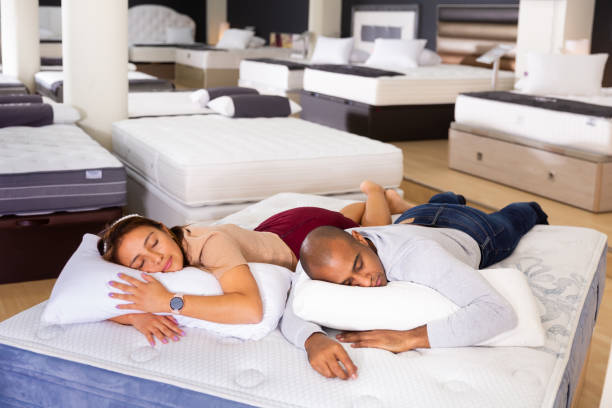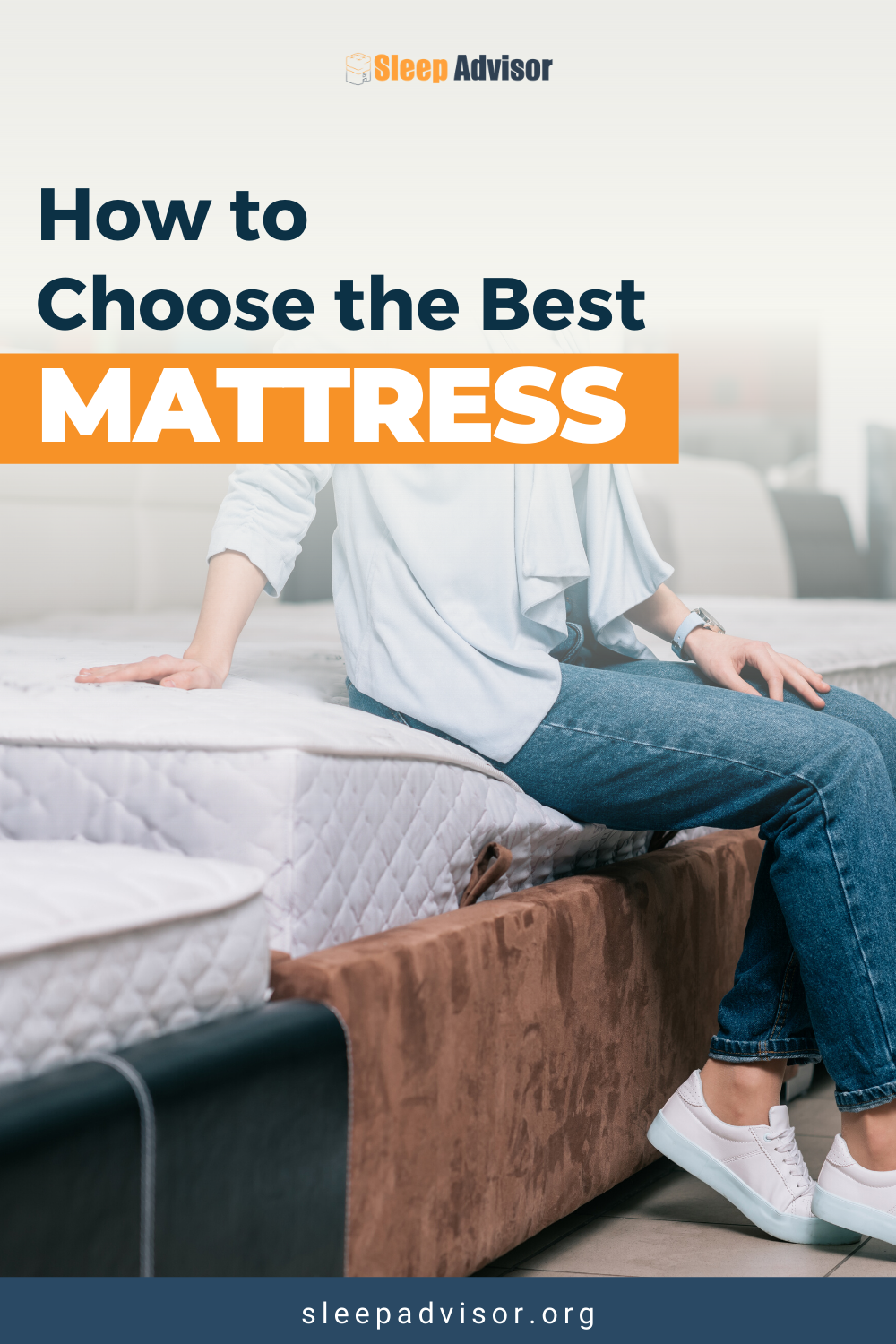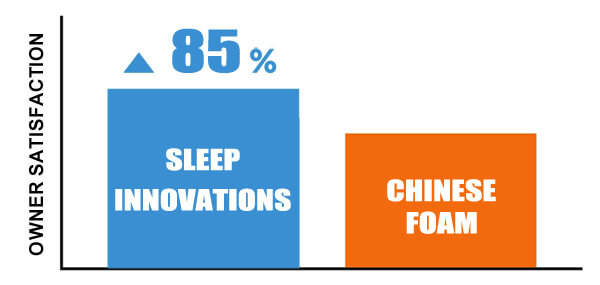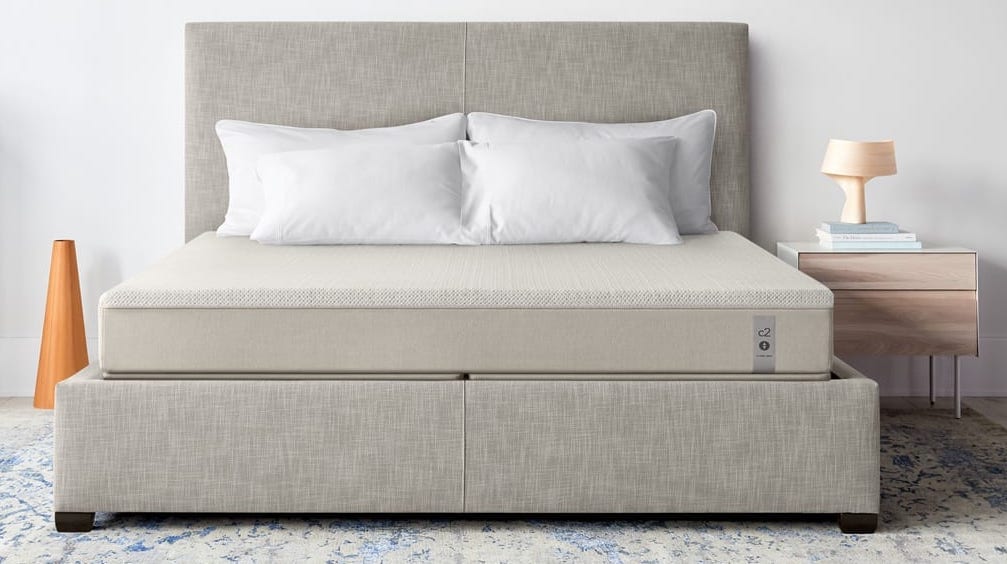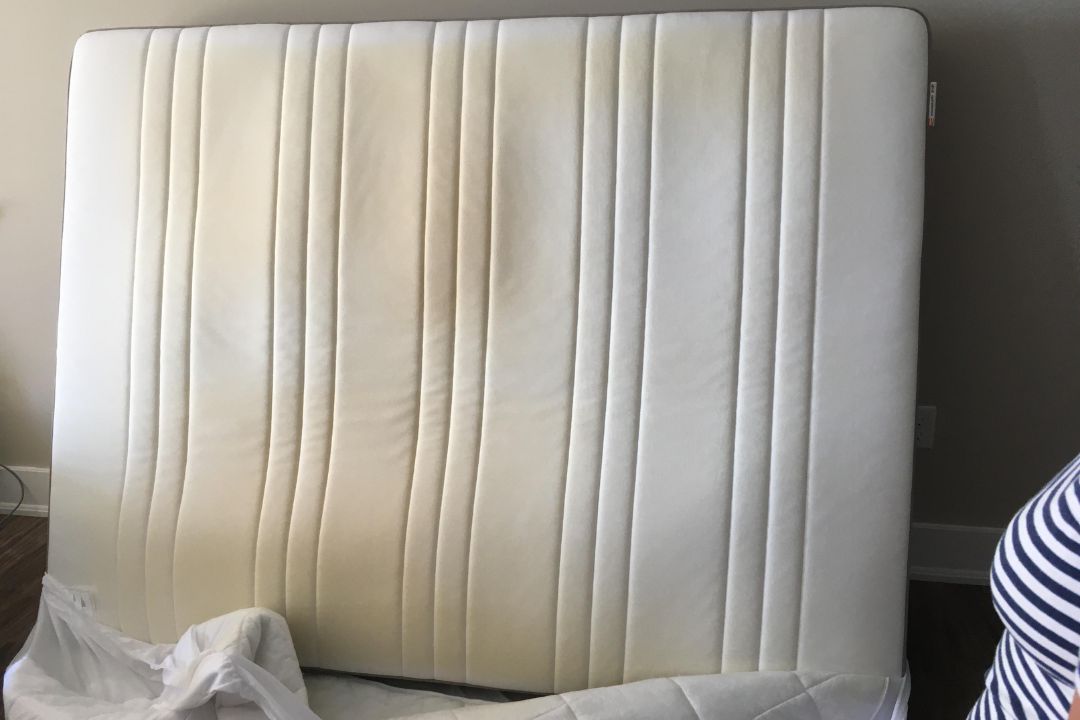When it comes to getting a good night's sleep, the firmness of your mattress can make all the difference. A study published in the Journal of Chiropractic Medicine found that medium-firm mattresses were the most effective in promoting quality sleep. This is because a mattress that is too soft can cause the body to sink in too much, leading to discomfort and poor spinal alignment, while a mattress that is too firm can create pressure points that result in tossing and turning throughout the night. For those who prefer a softer mattress, adding a mattress topper can help provide the necessary cushioning without sacrificing support. Alternatively, those who prefer a firmer mattress can opt for an adjustable base that allows for customization of firmness levels.1. The Effects of Mattress Firmness on Sleep Quality
Memory foam and innerspring mattresses are two of the most popular options on the market, but they differ in terms of their construction and support. A study published in the Journal of Clinical Sleep Medicine found that those who slept on a memory foam mattress experienced less tossing and turning and reported better overall sleep quality compared to those who slept on an innerspring mattress. This is because memory foam molds to the body's natural curves, providing targeted support for pressure points and promoting proper spinal alignment. In contrast, innerspring mattresses have a more rigid structure and may not conform to the body as well, leading to discomfort and disrupted sleep.2. A Comparison of Memory Foam and Innerspring Mattresses for Sleep Quality
Did you know that your preferred sleep position can also play a role in determining the best type of mattress for you? A study published in the Journal of Manipulative and Physiological Therapeutics found that side sleepers benefit from a softer mattress that cushions pressure points, while back and stomach sleepers may benefit from a firmer mattress that provides more support. This is because side sleepers tend to put more pressure on their hips and shoulders, which can lead to discomfort on a firmer mattress. On the other hand, back and stomach sleepers may struggle with spinal alignment on a softer mattress, leading to back pain and disrupted sleep.3. The Relationship Between Mattress Type and Sleep Position
Have you ever woken up feeling hot and sweaty, even though the temperature in your room was comfortable? Your mattress may be to blame. A study published in the Journal of Applied Physiology found that mattresses made of memory foam and latex tend to retain more body heat compared to traditional innerspring mattresses. For those who sleep hot, opting for a mattress with cooling features, such as gel-infused foam or breathable fabrics, can help regulate body temperature and promote a more comfortable sleep experience.4. The Impact of Mattress Material on Sleep Temperature
Back pain is a common issue that can greatly impact sleep quality. A study published in the journal Sleep Health found that a supportive mattress can significantly reduce back pain and improve sleep quality for those who suffer from chronic lower back pain. When looking for a mattress to alleviate back pain, it's important to consider both the firmness and support levels. A medium-firm mattress provides a balance of cushioning and support, while a mattress with zoned support can target specific areas of the body for maximum pain relief.5. The Role of Mattress Support in Alleviating Back Pain During Sleep
As mattresses age, they can lose their ability to provide proper support and comfort, leading to disrupted sleep. A study published in the Journal of Environmental and Occupational Science found that participants who slept on mattresses that were over nine years old reported more sleep disturbances and lower overall sleep quality. To ensure a restful night's sleep, it's recommended to replace your mattress every 7-10 years, depending on the quality and condition of the mattress.6. The Effect of Mattress Age on Sleep Quality
Deep sleep, also known as REM sleep, is essential for restoring the body and mind. A study published in the Journal of Clinical Sleep Medicine found that participants who slept on a comfortable mattress experienced more time in deep sleep compared to those who slept on a less comfortable mattress. When shopping for a mattress, it's important to consider not only the level of support, but also the level of comfort. A mattress that is both supportive and comfortable can help promote longer periods of deep sleep, leading to better overall sleep quality.7. The Importance of Mattress Comfort in Promoting Deep Sleep
It's no surprise that the quality of your mattress can impact the duration of your sleep. A study published in the Journal of Sleep Research found that participants who slept on a high-quality mattress experienced longer periods of uninterrupted sleep compared to those who slept on a low-quality mattress. When it comes to investing in a mattress, it's important to prioritize quality over price. A high-quality mattress can provide the necessary support and comfort for a longer, more restful sleep.8. The Connection Between Mattress Quality and Sleep Duration
Do you often find yourself tossing and turning throughout the night? Your mattress firmness could be a contributing factor. A study published in the Journal of Applied Ergonomics found that participants who slept on a medium-firm mattress experienced less sleep-related movement compared to those who slept on a softer or firmer mattress. By finding the right balance of firmness, you can minimize sleep-related movements and achieve a more restful sleep.9. The Influence of Mattress Firmness on Sleep-Related Movement
Ultimately, the most important factor in choosing a mattress is how satisfied you feel with your sleep experience. A study published in the Journal of Sleep Research found that participants who slept on a mattress that was selected based on their individual needs and preferences reported higher levels of overall sleep satisfaction. Take the time to research and try out different mattress types and firmness levels to find the best fit for your body and sleep habits. By prioritizing your personal comfort and support needs, you can achieve the most satisfying and restorative sleep possible.10. The Impact of Mattress Selection on Overall Sleep Satisfaction
The Importance of Choosing the Right Mattress for Quality Sleep

Why Sleep Research is Focusing on Finding the Best Mattress
 A good night's sleep is essential for our physical and mental well-being. However, many people struggle with getting quality sleep due to discomfort or pain caused by an inadequate mattress. This has led to a surge in sleep research focusing on finding the best mattress for optimal sleep.
A good night's sleep is essential for our physical and mental well-being. However, many people struggle with getting quality sleep due to discomfort or pain caused by an inadequate mattress. This has led to a surge in sleep research focusing on finding the best mattress for optimal sleep.
According to the National Sleep Foundation, a comfortable and supportive mattress is crucial for achieving quality sleep and waking up feeling rested. This is because our bodies need proper support and alignment during sleep to relax and recover from the day's activities. A poor-quality mattress can cause discomfort, pain, and even disrupt sleep, leading to fatigue and other health issues. As a result, researchers have been studying various types of mattresses and their impact on sleep quality to determine the best option for a good night's rest.
The Science Behind Finding the Best Mattress
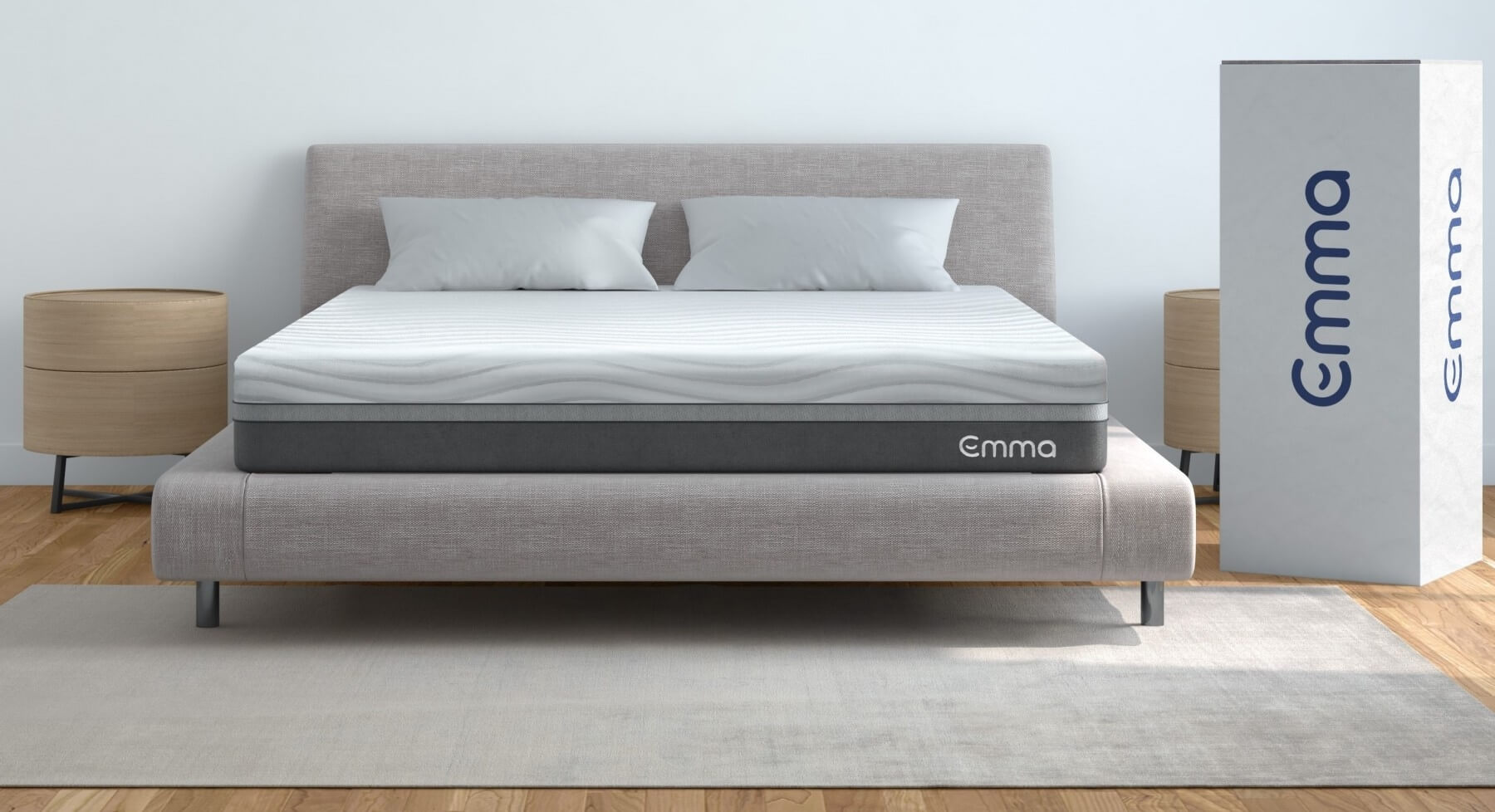 Sleep research has delved into the science of sleep and the factors that influence it, including the type of mattress we sleep on.
Studies have shown that a medium-firm mattress is the best option for most people, as it provides a balance of support and comfort.
This type of mattress allows the body to sink in slightly, providing support to pressure points while keeping the spine aligned. This helps alleviate pain and discomfort, promoting better sleep quality.
Sleep research has delved into the science of sleep and the factors that influence it, including the type of mattress we sleep on.
Studies have shown that a medium-firm mattress is the best option for most people, as it provides a balance of support and comfort.
This type of mattress allows the body to sink in slightly, providing support to pressure points while keeping the spine aligned. This helps alleviate pain and discomfort, promoting better sleep quality.
Another crucial aspect that researchers have focused on is the material used in mattresses. Memory foam, latex, and innerspring are some of the most commonly studied materials. Each has its advantages and disadvantages, and researchers have compared them to determine which one offers the best support and comfort for quality sleep. This information can be valuable for individuals looking to invest in a new mattress and improve their sleep.
The Role of Personal Preferences in Choosing the Best Mattress
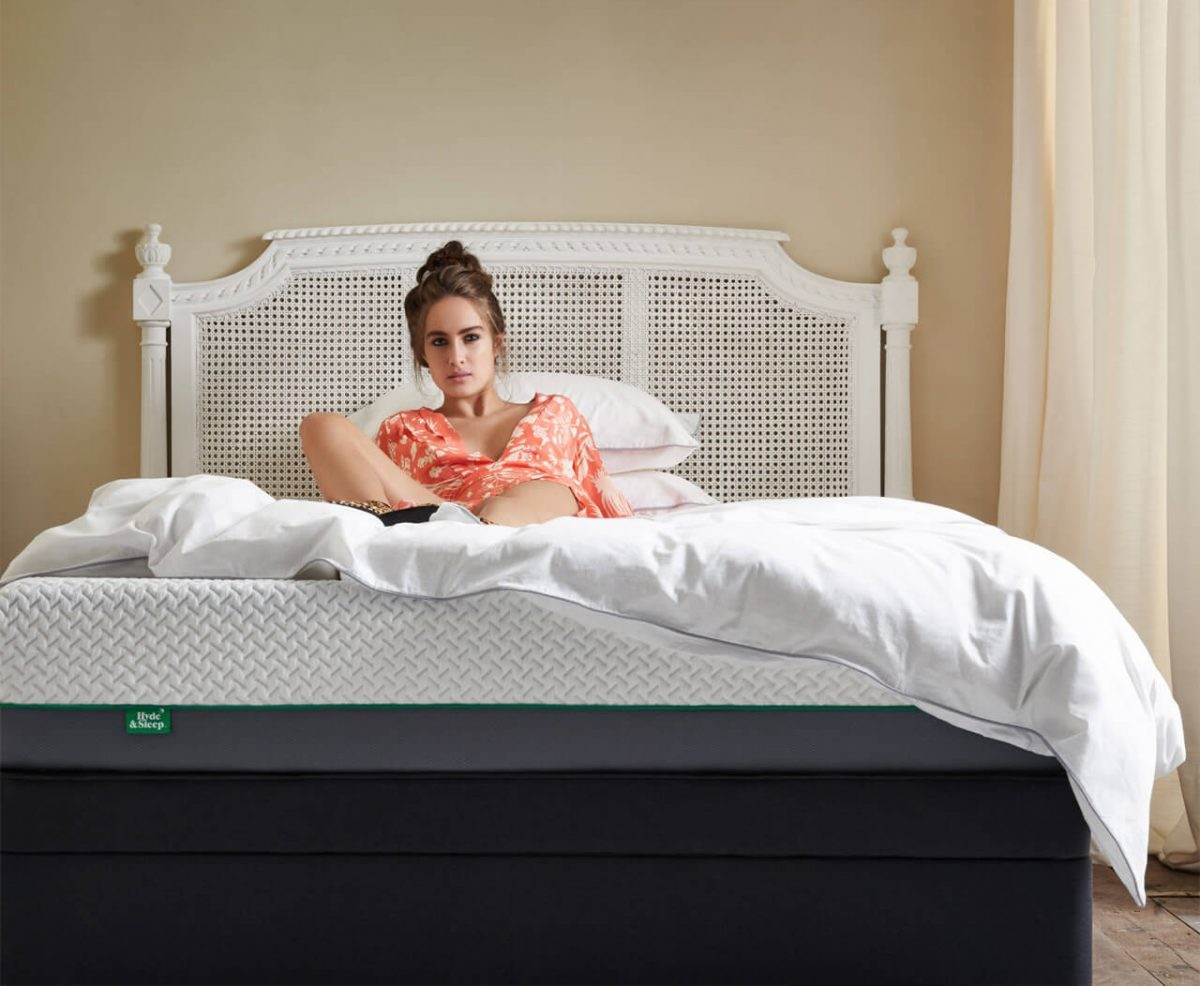 While sleep research has provided valuable insights into choosing the best mattress, it is essential to note that personal preferences also play a significant role.
Factors such as body weight, sleeping position, and existing health conditions can influence the type of mattress that works best for an individual.
This is why it is crucial to test out different mattresses and determine which one feels most comfortable and supportive for your body.
While sleep research has provided valuable insights into choosing the best mattress, it is essential to note that personal preferences also play a significant role.
Factors such as body weight, sleeping position, and existing health conditions can influence the type of mattress that works best for an individual.
This is why it is crucial to test out different mattresses and determine which one feels most comfortable and supportive for your body.
In conclusion, sleep research on finding the best mattress is continuously evolving, providing valuable information for individuals looking to improve their sleep. Investing in a high-quality mattress that meets your specific needs and preferences can have a significant impact on your overall health and well-being. So, if you are struggling with getting quality sleep, it may be time to consider upgrading your mattress and giving your body the support and comfort it needs for a good night's rest.








